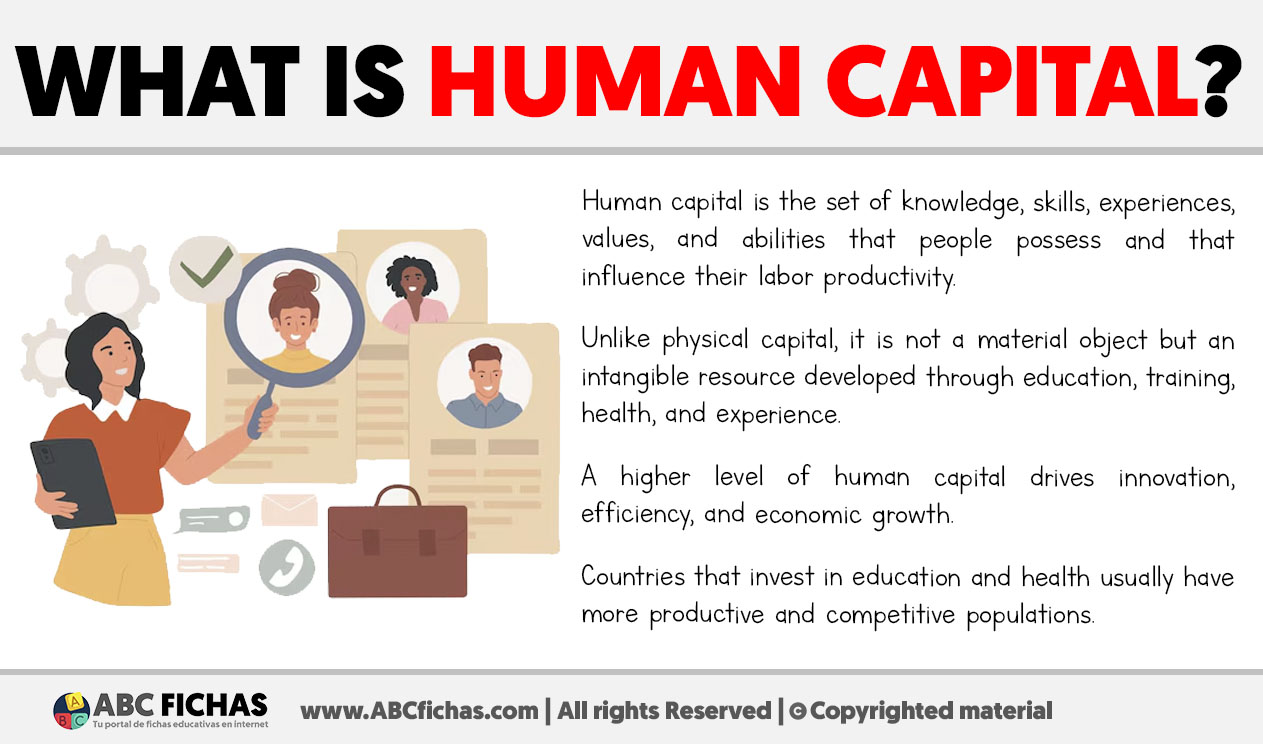Human capital refers to the collective set of knowledge, skills, abilities, experiences, and values that people possess and which directly influence their productivity in the workforce. It is an essential concept in economics and business because it emphasizes the role of people as valuable resources capable of generating growth and innovation. Unlike physical capital, such as machines or buildings, human capital is intangible but equally important for long-term development.

Human capital is developed through investment in education, training, health, and experience. For example, when governments and companies invest in schools, professional development, or healthcare systems, they are effectively increasing the quality of human capital. Healthier, better-educated individuals tend to be more productive, creative, and adaptable to change.
The level of human capital in a society directly impacts innovation, efficiency, and overall economic progress. Countries that prioritize education, skills training, and healthcare generally experience higher productivity, faster technological advancement, and stronger competitiveness in global markets.
In short, human capital is not only about individual success but also about collective growth. By valuing and improving people’s abilities, societies can achieve sustainable development, reduce inequality, and build more prosperous economies that rely on both knowledge and skills.